News
Airlines Lament As Aviation Fuel Price Hits N1,300 Per Litre
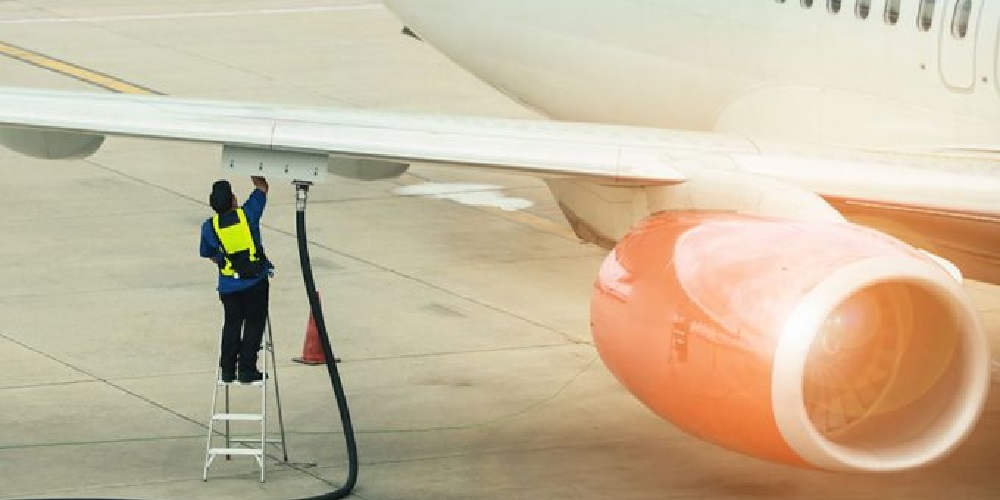
The Airline Operators of Nigeria have expressed deep concern regarding the escalating cost of operations, amidst the surge in aviation fuel prices exceeding N1300.
This was disclosed in a statement on Friday by the Spokesman of Airline Operators of Nigeria, Obiora Okonkwo.
Okonkwo in the statement stressed the critical need for immediate government intervention to prevent the collapse of numerous airlines.
The airlines said that the fluctuation in forex rates and the soaring cost of aviation fuel at N1,300 per litre have disrupted operational planning and stability within the aviation sector.
Okonkwo, who also chairs United Nigeria Airlines, explained that the unforeseen increase in aviation fuel prices from N700 per litre and the rise in the exchange rate to N1400/$1 have resulted in significant losses for airlines, TheGlittersreports.
Passengers who purchased tickets well in advance under previous rates are now being airlifted at the current higher costs, further impacting the airlines’ loss in the revenue stream, he claimed.
“We are making losses on factors that are beyond our control. We are not only faced with the problem of scarcity of dollars; even the aviation ecosystem is feeling the heat. Handling companies have increased the cost of their services, airports have increased their charges and those that service the aircraft have also increased the cost of their services. The monies for these payments are coming from the passengers who are already exhausted financially,” he said.
Okonkwo also noted that numerous businesses in Nigeria are experiencing low returns, leading to a decline in the number of essential passengers traveling during both peak and off-peak seasons. As a result, the airlines struggle to maintain adequate load factors to support their operations during the current low season, as there are fewer travelers for tourism and social engagements.
“Passenger traffic has shrunk because even those on social engagement like weddings, burials and other ceremonies may not be inclined to spend money on flight tickets; they would rather send credit alerts to those hosting the events who would appreciate such gestures. So, they pay instead of appearing in person,” he added.
“Air travel is a catalyst to economic development. There should have been government engagement with airlines at different levels. Airlines do not have special forex allocation; so, they buy at the same place traders who trade in Brazilian hair, textiles, and others buy.
“Our passion to remain in this business is being eroded. We are at the point of oxygen supply. Some airlines are going into a coma. Our equipment is diminishing. The minimal revenues we earn to keep the airlines flying, we convert to pay our lessors.
“It is impossible to bring in more aircraft. Aircraft owners have become skeptical because of country risk. A Nigerian airline may meet its terms, and all the standard criteria but the aircraft owners consider country risk above other factors. Country risk supersedes everything and lessors have their own obligations. So, there is nothing personal. Some airlines deposited money with the Central Bank of Nigeria but they cannot provide us the needed dollars,” he said.
News
Senator Manu donates five operational vehicles to Taraba PDP(Photos)
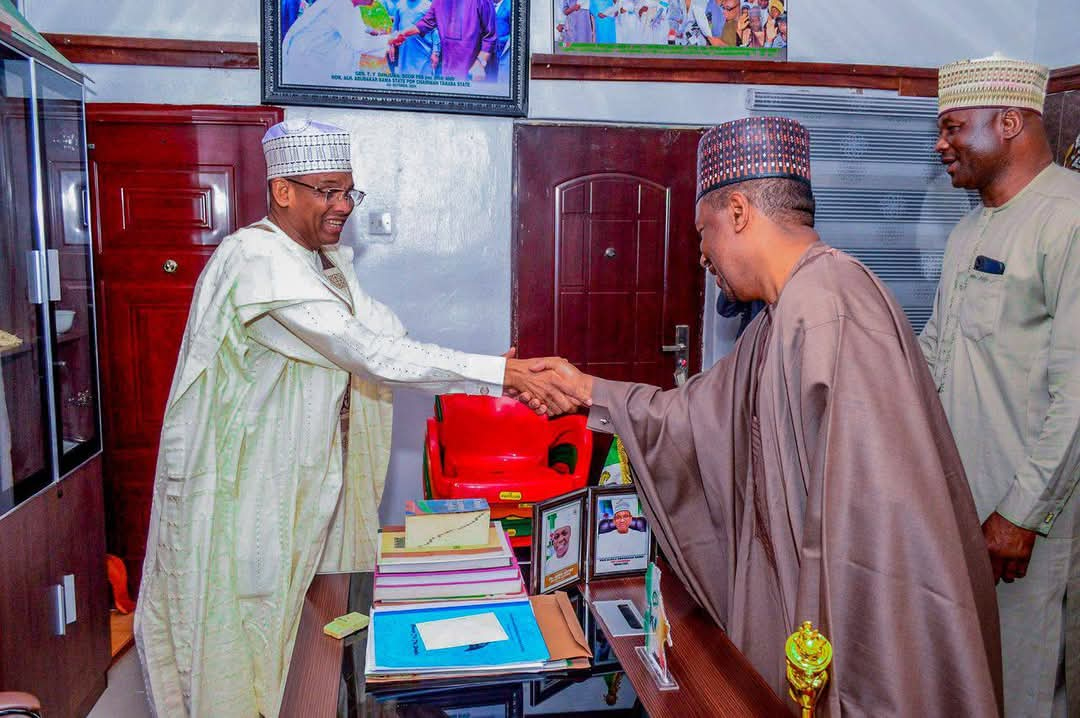
…hails emergence of Bawa as state chairman
The Senator representing Taraba Central Senatorial District Senator Manu Haruna on Sunday donated five operational vehicles to Taraba Peoples Democratic Party, PDP to enhance its operations.
Manu also seized the opportunity to congratulate the state Chairman, Hon Abubakar Bawa when he visited the secretariat in Jalingo last Sunday.
The former State Deputy Governor expressed his congratulations to Chairman Bawa and the state working committee for their election, emphasizing the importance of unity and progress within the party. He commended their commitment to strengthening the People’s Democratic Party (PDP) in Taraba State.
In a generous move to enhance the operational capacity of the party at the grassroots level, Senator Manu donated five vehicles — one for each Local Government Area (LGA) party chapter in Taraba Central.
This donation is intended to facilitate better coordination and outreach efforts within the party.
Senator Manu praised Hon. Abubakar Bawa for his dedicated efforts to elevate the PDP in the state, asserting that Taraba will always remain a stronghold for the party.
In response, State Party Chairman Alhaji Bawa expressed his heartfelt gratitude to Senator Manu for his thoughtful visit and generous donation. He acknowledged the impact of such contributions on the party’s progress and reemphasized the commitment of the PDP to serve the interests of the people in Taraba State.
News
Justice Minister, Fagbemi seeks support for govt’s national law reform initiative
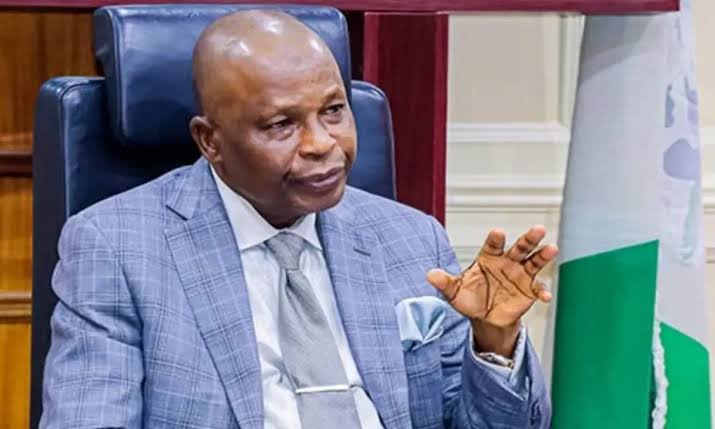
By Francesca Hangeior
The Attorney General of the Federation and Minister of Justice, AGF, Prince Lateef Fagbemi, SAN, has canvassed for greater efforts and commitments to the Federal Government’s aspirations to produce a workable legal framework for the country.
He charged the Committee put in place by the federal government to review, revise and consolidate the Laws of the Federation of Nigeria, LFN, to double the efforts and commitments to deliver on the mandate at the appointed time.
Fagbemi, a Senior Advocate of Nigeria, spoke on Monday in Abuja at the second retreat of the Committee put in place in October last year for the laws of the federation revision and reform.
The AGF while challenging the committee to be up and doing asked the members to remain united in purpose and steadfast in the resolve to produce a legal framework that is worthy of the nation’s aspirations.
He said the second retreat organized by the federal government was a strategic consolidation of the national law reform efforts and to provide an invaluable opportunity to come up with a better workable legal framework for the nation.
“Let me start by expressing gratitude to the Chairman, Co-Chairperson and members of the Committee for their selfless service and sacrifice, to ensure that this project is executed efficiently and effectively.
“The call to be part of this assignment is indeed a sacred that inevitably and positively affects the lives of individuals, government, businesses as well as citizens of this nation.
“The general purpose of law is to regulate human behavior by protecting lives and properties in society. The inauguration of the Committee on the 24th October, 2024 marked a historic milestone in our collective efforts to modernize, consolidate, and harmonize Nigeria’s body of federal statutes.
“The retreat successfully provides a clear framework for the structure and methodology of the revision exercise, oriented the 14 Working Groups tasked with reviewing specific legal subject areas, and fostered collaboration among key institutions and stakeholders on the project.
“Following the initial retreat, I wish to note that the Committee has recorded steady progress in its work.
“The Ministry has taken several measures to ensure that the assignment is delivered efficiently, including:training sessions for secretaries of the working groups to enhance documentation and coordination; technical meetings of the main committee and its various sub-committees; working sessions and deliberations among editors and reviewers; and ongoing technical collation of revised laws by the Secretariat.
“This second retreat is a strategic consolidation of our national law reform efforts and provides an invaluable opportunity to: review progress made since the first phase;
address any technical or structural challenges encountered during the collation process;
– Harmonize the output across working groups; and set the tone for the final stages of this important project.
“The next stage of the law review and consolidation process would include editing and proofreading the reviewed legislation, ahead of the final collation, production and printing of the laws of the federation.
“It is my conviction that these phases will be executed with even greater commitment by the Committee, with the support of stakeholders and development partners.
“I wish to commend the leadership of the LFN Committee, the Secretariat for its diligent coordination and day-to-day management as well as the Working Groups, Editors, and Reviewers, for their intellectual rigour and professionalism.
“Special gratitude to our development partners, particularly RoLAC, for standing firmly behind this national project.
“Let me urge all participants to use this retreat as a platform for robust engagement, peer learning, and practical collaboration.
“We must remain united in purpose and steadfast in our resolve to produce a legal framework that is worthy of our nation’s aspirations.
” I wish to express gratitude for your commitment to duty and I charge you to work in synergy and cooperation, in the overall interest of the nation”, the AGF said.
News
You must refund N300m, Rivers State tells NBA
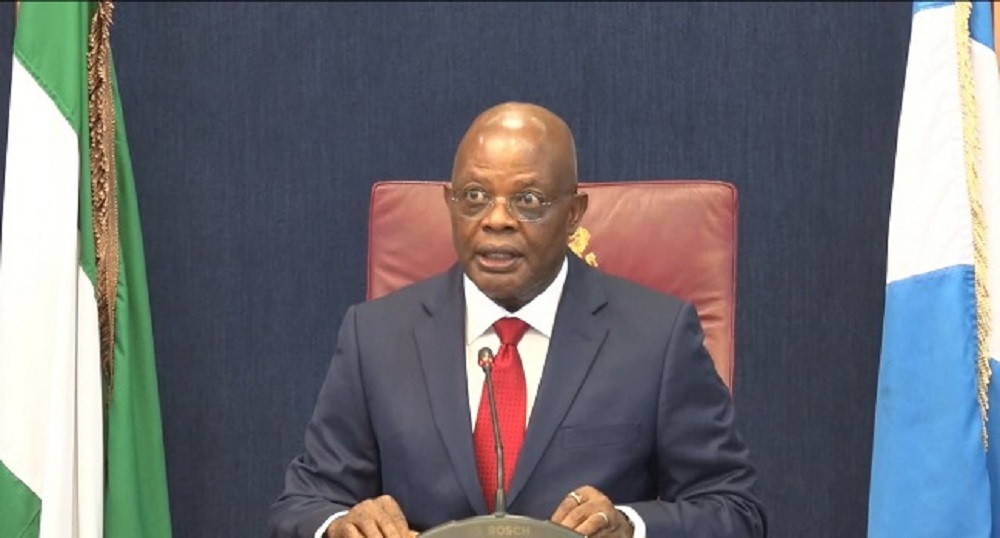
The Rivers State Sole Administrator, Vice Admiral Ibok-Ete Ibas (retd.), has replied to the Nigerian Bar Association regarding the reason for relocating its Annual General Conference from Port Harcourt to Enugu State.
Ibas faulted the reason cited by the NBA, describing it as misleading and uncharitable.
The Sole Administrator stated this in a statement issued in Port Harcourt on Monday by his media aide, Hector Igbikiowubo, and sent to newsmen.
He said while the NBA reserves the right to choose a venue for its conference, the association had yet to address the issue of the refund of the hosting rights paid by the state government for the conference.
The statement partly reads, “While we respect the NBA’s right to choose its conference venues, we find it curious that the association—despite its “principled position”— didn’t address the refund of the N300 million already paid by the Rivers State Government for the hosting rights of the 2025 conference.
“If the NBA truly stands on principle, it should demonstrate the same integrity by promptly returning these funds rather than benefiting from a state it now publicly discredits.”
It added, “The attention of the Rivers State Government has been drawn to the Nigeria Bar Association’s announcement dated 10th April 2025, relocating its 2025 Annual General Conference from Port Harcourt to Enugu.
The statement partly reads, “While we respect the NBA’s right to choose its conference venues, we find it curious that the association—despite its “principled position”— didn’t address the refund of the N300 million already paid by the Rivers State Government for the hosting rights of the 2025 conference.
“If the NBA truly stands on principle, it should demonstrate the same integrity by promptly returning these funds rather than benefiting from a state it now publicly discredits.”
It added, “The attention of the Rivers State Government has been drawn to the Nigeria Bar Association’s announcement dated 10th April 2025, relocating its 2025 Annual General Conference from Port Harcourt to Enugu.
-

 News22 hours ago
News22 hours agoAutonomy: 774 LGs challenge FG, states in court Tuesday
-
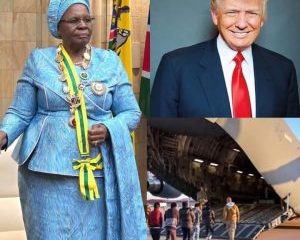
 News15 hours ago
News15 hours agoJust in: Namibia Moves to Deport Over 500 Americans in Bold Visa Policy Shift
-

 News15 hours ago
News15 hours agoRivers women rally in support of state of emergency
-

 News10 hours ago
News10 hours agoYou must refund N300m, Rivers State tells NBA
-
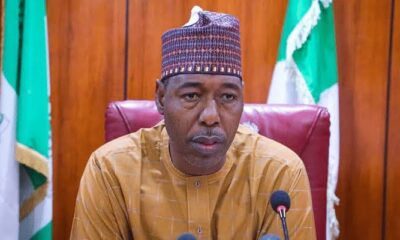
 News22 hours ago
News22 hours agoZulum orders arrest, offers house, scholarship to abused boy in viral video
-

 Politics13 hours ago
Politics13 hours agoBwala accuses Senator Ndume of plans to defect from APC
-
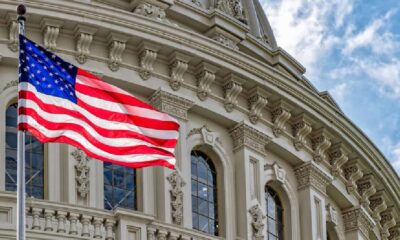
 Foreign11 hours ago
Foreign11 hours agoUS orders 30-day registration for all foreign nationals or face jail, deportation
-
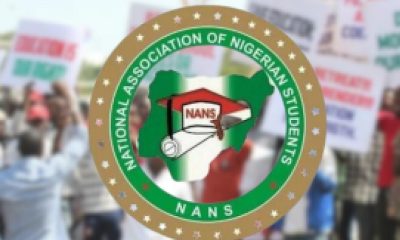
 News23 hours ago
News23 hours agoNANS criticize NASS over proposed bill to fine, jail non voters









